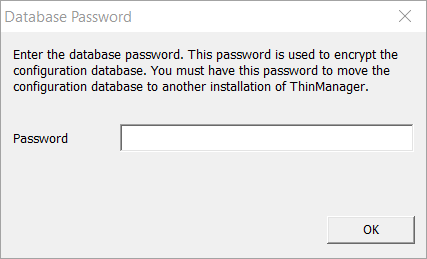
- Passwords plus database location password#
- Passwords plus database location Offline#
- Passwords plus database location crack#
Passwords plus database location password#
This is according to tests run by Hive Systems and published in April 2023. On the contrary, a simple password that contains only lower and upper case characters but is 18 characters long takes far, far longer to crack. Today, automated password cracking tools can guess such a password in minutes, especially if it’s secured with the MD5 hashing function.
Passwords plus database location crack#
For example, it may be a whole sentence that stuck in your head for some reason, sprinkled by capitals, special characters, and emojis. While not being super complex, it will still take ages for automated tools to crack it.Ī few years ago, the minimum length for a good password was eight characters, which consisted of lower and upper cases, signs, and numbers. They are longer and more complex but still easy to remember. Instead of shorter but difficult passwords, go for passphrases. This is because such rules rarely encourage users to set stronger passwords, prompting them instead to act predictably and come up with passwords that are a “double whammy” – they’re both weak and difficult to remember.


Stop imposing unnecessarily complex password composition rulesĪny exceedingly complex composition rules (such as requiring users to include both uppercase and lowercase characters, at least one number and a special character) are no longer a must. However, if your small or medium-sized business isn’t ready to part ways with passwords just yet, here’s some guidance that will stand you and your employees in good stead in 2023. In recent years, leading organizations such as The Open Web Application Security Project (OWASP) and, of course, NIST itself have shifted their policies and advice towards a more user-friendly approach – all while increasing password security.Īt the same time, tech giants such as Microsoft and Google are encouraging everyone to ditch passwords altogether and go passwordless instead. Indeed, studies have found that people typically remember just up to five passwords and take shortcuts by creating easy-to-guess passwords and then recycle them across various online accounts. Some may actually substitute numbers and special characters for letters (e.g., “password” turns into “P4?WØrd”), but this still makes for a password that is easy to crack.
Passwords plus database location Offline#
These days, an average person has up to 100 passwords to remember, with the number growing at a rapid clip in recent years (although in fact, some people used around 50 passwords, including a number of offline codes, even years ago and some security experts have been pointing out that such password habits and policies are unsustainable.) Or, as the famous xkcd comic has put it: “Through 20 years of effort, we’ve successfully trained everyone to use passwords that are hard for humans to remember, but easy for computers to guess.”

“It just drives people bananas and they don’t pick good passwords no matter what you do,” he told the Wall Street Journal. National Institute of Standards and Technology (NIST) wrote in 2003 what would soon become the world’s gold standard for password security, he advised people and organizations to protect their accounts by inventing long and ‘chaotic’ lines of characters, numbers, and signs – and to change them regularly.įourteen years later, Burr admitted that he regretted his past advice. Don’t torture people with exceedingly complex password composition rules but do blacklist commonly used passwords, plus other ways to help people help themselves – and your entire organization


 0 kommentar(er)
0 kommentar(er)
